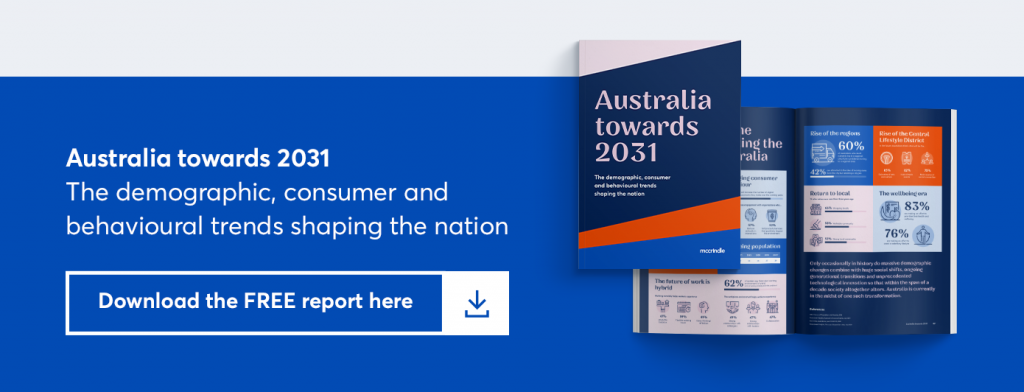By: McCrindle
Such has been Melbourne’s growth, it was just three years ago its population reached 5 million, two years after Sydney hit the milestone, yet it will close out this decade at 6 million, getting there ahead of Sydney.
In 2027, when Melbourne overtakes Sydney to be our largest city, it won’t be for the first time. As a result of the Gold Rush and until the 1890’s, Melbourne was Australia’s biggest city. But back then, Melbourne was a side show to Victoria’s growth, home to just one in four Victorians. Today three in four Victorians call Melbourne home.

Yet we are once again seeing a rebalancing of Victoria’s population beyond its capital. The future of Victoria therefore will depend on thriving regions, not just the city of Melbourne. Regional cities today offer affordability, liveability and in a work-from-home world, employability that was until recently Melbourne’s domain.
What Victoria needs to thrive in the future
To provide for this momentum back to the regions, infrastructure, housing and built amenity will be key. The internal migration to regional Victoria is comprised of people not so much moving to rural townships, but regional cities. They are seeking school options, university campuses, diverse retail offerings, business hubs and the café culture of a capital city. Melbourne was voted the world’s most liveable city for seven years in a row because of two centuries of investment and improvements in the city, and the same commitment will be required to ensure its regional cities have this world-class liveability.
There is one more thing that future Victoria will need: strong and fast connections from the regions to Melbourne and beyond. High speed rail has been shown globally to offer reliable and convenient commuting between large cities as well as a way to open up rural areas for greenfield city development. A connected state, with regional living options, within easy reach of a thriving Melbourne is a future Victoria that many are opting into today.

Article supplied with thanks to McCrindle.
About the Author: McCrindle are a team of researchers and communications specialists who discover insights, and tell the story of Australians – what we do, and who we are.
Feature image: by Denise Jans on Unsplash
